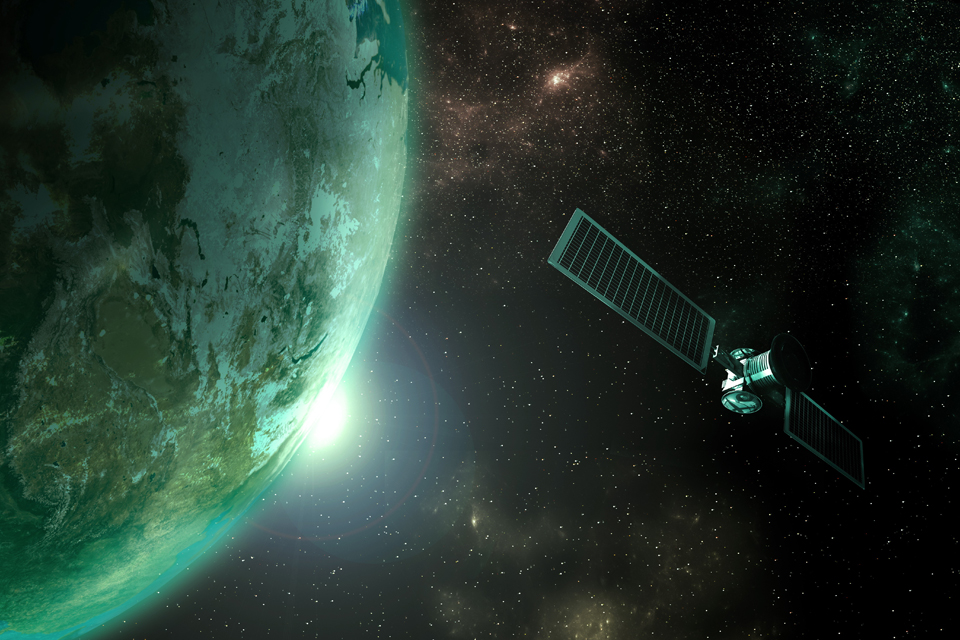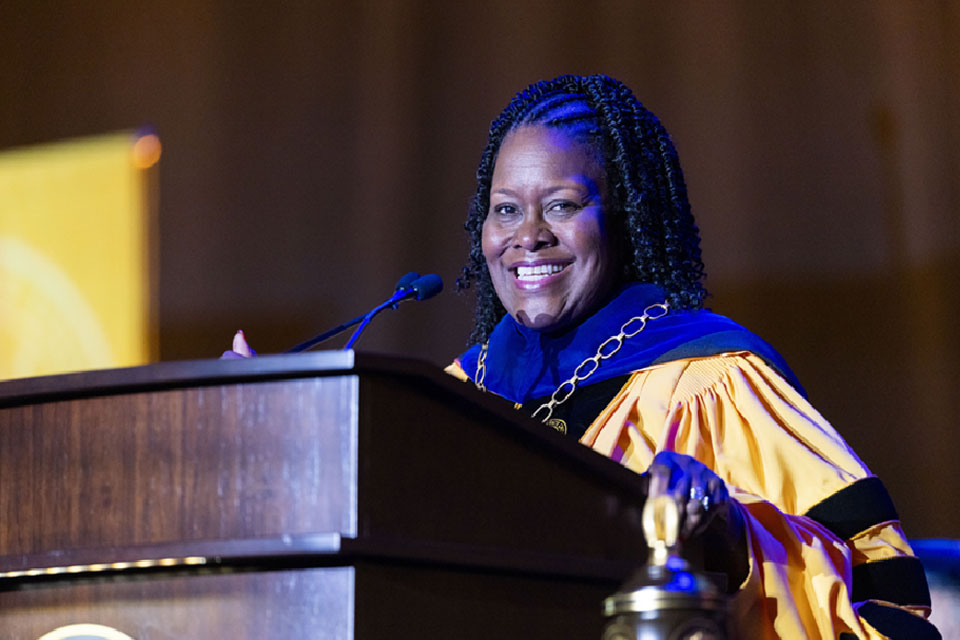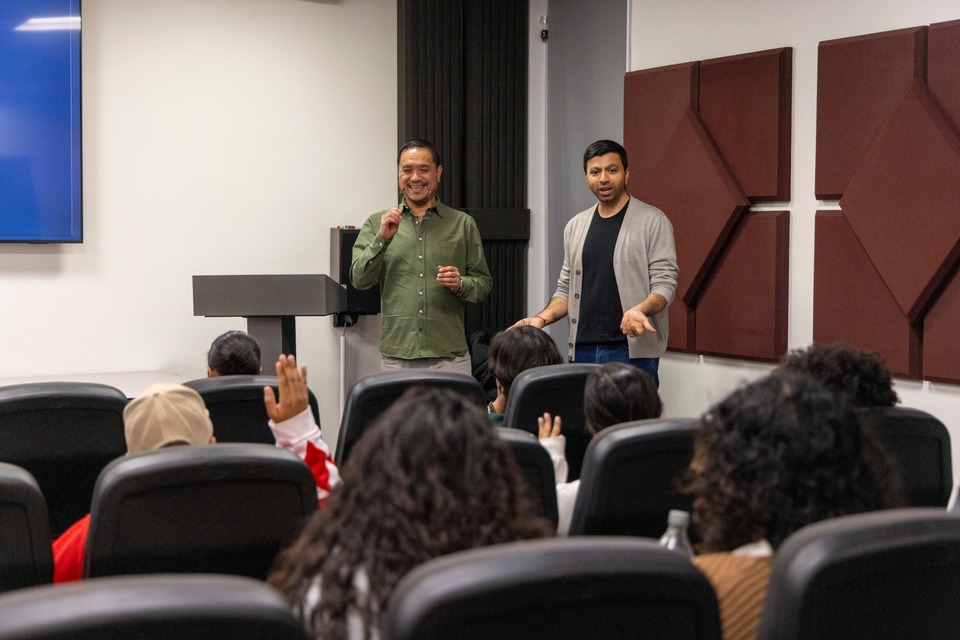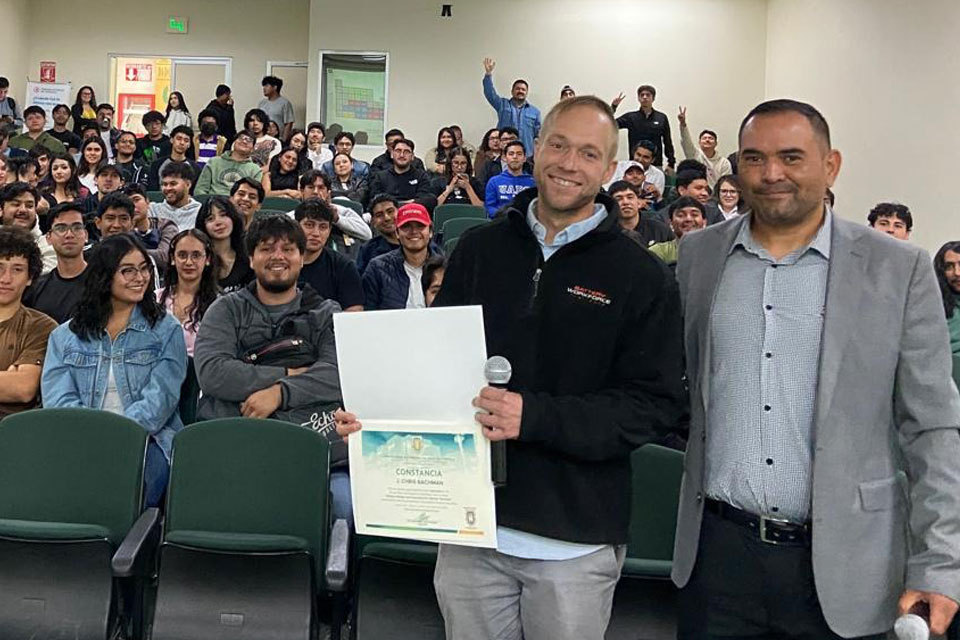Cal State LA has received a $300,000 grant from the National Aeronautics and Space Administration (NASA) to assist students from underprivileged communities in the greater Los Angeles area to succeed in their pursuit of careers as NASA scientists and researchers in science, technology, engineering, and mathematics.
Through the two-year grant, Cal State LA will partner with NASA Jet Propulsion Laboratory (JPL) on a project to strengthen the research capacity of its faculty and students in the field of remote sensing. Remote sensing is technology used to obtain and study data about the Earth’s surface through aerial photographs or satellite images.
The grant is part of $3.9 million in grants from NASA aimed at supporting collaborative projects with NASA that offer students mentorship and career development in STEM fields.
“I am so honored to receive this NASA grant,” said Jingjing Li, the grant’s lead principal investigator and associate professor of geography, geology, and environment in the College of Natural and Social Sciences at Cal State LA. “It will provide great opportunities for undergraduate and graduate students to be involved in NASA-related research activities in partnership with JPL and research collaborations between our faculty and JPL scientists.”
Li’s research interests focus on bridging water resources, hydrology, and remote sensing. She earned her Ph.D. in civil engineering at the University of California, Irvine.
The project team includes co-principal investigator Alireza Farahmand, assistant professor in the Department of Geography, Geology, and Environment at Cal State LA.
The grant project will focus on assessing individual and compound extremes using remote sensing observations and pre- and post-wildfire analysis utilizing satellite and in-situ data.
Liu explained that this study will help provide a clearer picture of how extreme weather and environmental conditions affect Southern California (SoCal) by looking at data from satellites and on-the-ground sensors. It will also explore the impact of wildfires on vegetation, soil, and water by comparing conditions before and after the fires in SoCal.
“Our faculty and JPL partners will form a collaborative team to provide close and effective mentorship to our participating undergraduate and graduate students through this year-long research program, including a 10-week summer internship at JPL,” said Li.
The grant funding comes from the NASA MOSAICS (Mentorship and Opportunities in STEM with Academic Institutions for Community Success) program, formerly known as the Science Mission Directorate Bridge Program, which was established in 2022 to improve diversity, equity, inclusion, and accessibility in the science and engineering communities, as well as NASA’s workforce.
The MOSAICS program funds research projects at academic institutions—including Hispanic-serving institutions, historically Black colleges and universities, Asian American and Native American Pacific Islander-serving institutions, and primarily undergraduate institutions—that build or strengthen relationships with NASA.
Cal State LA is a Hispanic-Serving Institution, Minority-Serving Institution, and Asian American and Native American Pacific Islander-Serving Institution.

Photo: Jingjing Li, associate professor in the Department of Geography, Geology, and Environment at Cal State LA. (Credit: Cal State LA)
# # #
California State University, Los Angeles is the premier comprehensive public university in the heart of Los Angeles. Cal State LA is ranked number one in the United States for the upward mobility of its students. Cal State LA is dedicated to engagement, service, and the public good, offering nationally recognized programs in science, the arts, business, criminal justice, engineering, nursing, education, and the humanities. Founded in 1947, the University serves more than 24,000 students and has more than 250,000 distinguished alumni.





